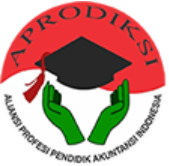DEVELOPMENT OF ACCOUNTING JENGA AS A LEARNING MEDIA TO IMPROVE STUDENTS MOTIVATION
DOI:
https://doi.org/10.21831/jpai.v15i1.14815Abstract
This research aimed at: (1) developing Accounting Jenga as a learning media in Accounting Equation material for students in class XI IPS 1 SMA Negeri 1 Prambanan Klaten, (2) measure the feasibility of Accounting Jenga based on the assessment of material expert, media expert, subject practitioner, students' responses, and (3) measure students' motivation improvement. This research was Research and Development (R&D) adapting the ADDIE model. Data were collected through questionnaires distribution and were analysed using qualitative quantitative method. The results were: (1) average score obtained from Material Expert was 4.83 classified as Strongly Feasible, (2) average score obtained from Media Expert was 4.27 classified as Strongly Feasible, and (3) average score obtained from Subject Practitioner was 4.93 classified as Strongly Feasible. Based on students' responses, average score obtained in small group tryout was 4.51 classified as Strongly Feasible and average score obtained in field tryout was 4.26 classified as Strongly Feasible. Students' motivation improved 6.62% from 73.02% to 79.32%. Paired sample t test result showed that the improvement is significant (sig 0.000 and t value 5.287).
Keywords: Accounting Jenga, Learning Media, Learning Motivation, Accounting Equation, ADDIE.
Downloads
Published
How to Cite
Issue
Section
License
Authors who publish with Jurnal Pendidikan Akuntansi Indonesia journal agree to the following terms:
- Authors retain copyright and grant the Jurnal Pendidikan Akuntansi Indonesia journal right of first publication with the work simultaneously licensed under Creative Commons Attribution License (CC BY 4.0) that allows others to share the work with an acknowledgment of the work's authorship and initial publication in this journal.
- Authors can enter into separate, additional contractual arrangements for the non-exclusive distribution of the published version of the work (e.g., post it to an institutional repository or edit it in a book), with an acknowledgment of its initial publication in this journal.
- Authors are permitted and encouraged to post their work online (e.g., in institutional repositories or on their website) before and during the submission process, as it can lead to productive exchanges, as well as earlier and greater citation of published work.






